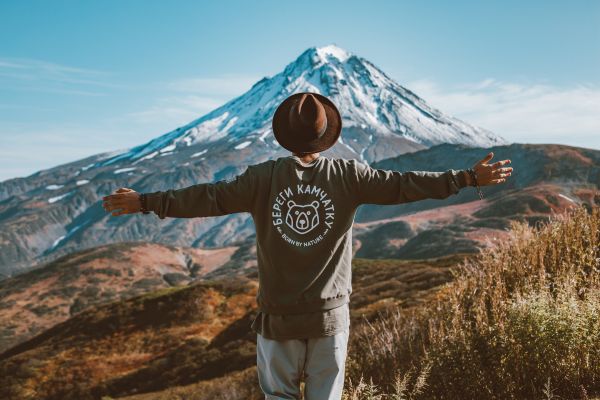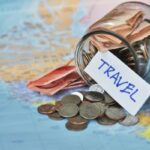Solo travel has become one of the most liberating and transformative experiences anyone can undertake. Whether you’re craving a break from routine or looking to reconnect with yourself, venturing into the world on your own can offer a deep sense of freedom and discovery. This ultimate guide to solo travel for beginners will walk you through everything you need to know to get started, highlighting the joys, challenges, and life-changing lessons along the way.
Why Solo Travel is Gaining Popularity
In a world where connection often takes place behind screens, solo travel offers an opportunity to step out of the digital haze and into real, unfiltered experiences. More people are choosing to travel alone not out of necessity, but from a desire to explore the world on their own terms. The appeal lies in the independence and control it provides. You decide your schedule, your destinations, and how deeply you engage with your surroundings.
Solo travel also cultivates self-confidence. Each decision made and obstacle overcome reinforces your ability to navigate life independently. It’s a journey inward as much as it is outward, fostering personal growth in unexpected ways.
Planning the Perfect Solo Trip
For beginners, planning a solo trip may seem overwhelming at first. However, with thoughtful preparation, it becomes a manageable and even exciting process. The first step is choosing a destination that aligns with your comfort level and interests. Some cities are known for being especially welcoming to solo travelers, offering safety, accessibility, and a vibrant local culture.
Research is key. Understanding the cultural norms, language basics, and transportation systems of your chosen destination can help reduce anxiety and make your journey smoother. Booking accommodations in advance can also provide a sense of security. Many solo travelers find comfort in staying at hostels, boutique hotels, or homestays where they can meet like-minded people while maintaining the freedom to do things solo.
Overcoming the Fear of Being Alone
One of the most common concerns about solo travel is the fear of loneliness. It’s natural to worry about feeling isolated in unfamiliar places. Yet, what many discover is that being alone doesn’t have to mean being lonely. In fact, solo travel often leads to richer interactions with locals and fellow travelers, as you’re more approachable and open without the buffer of a travel companion.
Additionally, solo travel gives you the space to enjoy your own company. Eating alone at a café or wandering through a museum at your own pace becomes a peaceful and empowering experience. It’s in these moments of solitude that many travelers find clarity and inspiration they never expected.
Staying Safe While Traveling Solo
Safety is a crucial aspect of solo travel, especially for beginners. Taking a few proactive steps can significantly enhance your sense of security. Always keep someone informed of your travel itinerary and check in regularly with friends or family. Trust your instincts—if something doesn’t feel right, it’s okay to walk away or change your plans.
Carrying essential documents, having access to emergency contacts, and keeping digital backups of important information can be lifesaving in emergencies. Staying aware of your surroundings and avoiding risky situations, particularly at night or in unfamiliar neighborhoods, can go a long way in keeping you safe.
While it’s important to be cautious, remember that most people you encounter are kind and helpful. Don’t let fear overshadow the excitement and potential of your adventure.
The Freedom and Flexibility of Solo Travel
Perhaps the greatest allure of solo travel is the complete freedom it offers. Want to spend an entire day watching the sunrise from a remote cliff or linger in a bookstore for hours? You can, without negotiating with anyone else’s preferences or schedules. This level of autonomy allows you to create a deeply personal and meaningful travel experience.
Flexibility is another major advantage. You can change plans on a whim, extend your stay in a city that captures your heart, or take a detour that leads to an unexpected gem. There’s a certain magic in not knowing exactly what the day will bring and embracing the spontaneity that comes with it.
Cultural Immersion and Connection
Traveling solo often leads to more immersive cultural experiences. Without the distraction of company, you become more attuned to your environment. You notice the small details—the scent of street food drifting through alleyways, the rhythm of local music echoing in markets, the unspoken gestures of daily life in a foreign land.
Engaging with locals becomes more natural when you’re on your own. Whether it’s striking up a conversation with a shopkeeper, joining a local cooking class, or attending a community festival, these encounters add depth and authenticity to your journey. These moments not only enrich your understanding of the place but also leave you with lasting memories and friendships.
Managing Budget and Expenses While Traveling Alone
Solo travel doesn’t have to be expensive. With careful planning, you can stick to a budget and still enjoy a fulfilling experience. Choosing off-season travel dates, staying in budget-friendly accommodations, and using public transportation can significantly reduce costs. Eating like a local—frequenting street vendors or small eateries—can also help you save money while offering a taste of authentic cuisine.
Moreover, traveling alone means you have full control over where your money goes. You can splurge on experiences that matter to you and skip those that don’t. This financial independence adds another layer of satisfaction to your solo travel journey.
Personal Growth Through Solo Exploration
Beyond the logistics and practicalities, solo travel is ultimately about growth. Being on your own in an unfamiliar setting forces you to adapt, learn, and trust yourself. You become more resourceful and resilient, learning to solve problems creatively and handle unexpected situations with grace.
Each solo trip strengthens your self-awareness and broadens your worldview. You begin to appreciate different perspectives, embrace diversity, and see the world—and yourself—with new eyes. The sense of accomplishment that comes from navigating the unknown alone is unmatched.
The Lasting Impact of Solo Travel
Long after your trip ends, the impact of solo travel remains. The stories you collect, the lessons you learn, and the confidence you build continue to shape you. You return not just with souvenirs, but with a renewed sense of purpose and a deeper understanding of your own capabilities.
Solo travel isn’t just about seeing the world—it’s about stepping into your power, embracing independence, and finding joy in your own company. It teaches you that you don’t need to wait for the perfect companion or the right moment. The world is out there, and so are you—ready to explore it, one solo journey at a time.
Conclusion: Your Journey Begins Now
Embarking on a solo travel adventure can be both exhilarating and intimidating, especially for beginners. Yet, with the right mindset and preparation, it becomes a gateway to unforgettable experiences and profound self-discovery. From planning your itinerary to embracing the thrill of the unknown, every step of your journey holds the potential to transform you.
So, if you’ve ever felt the urge to pack your bags and go, trust that solo travel is not only possible—it’s deeply rewarding. The road awaits, and with every mile you travel alone, you step closer to a stronger, freer, and more enlightened version of yourself.







